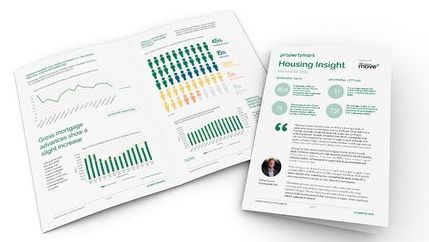Property industry news
New approach – but no uplift – for Disabled Facilities Grant
The reforms are designed to better reflect current patterns of need and ensure funding is distributed more fairly and will influence how quickly adaptations can be delivered for disabled homeowners and renters, including those in the private rented sector (PRS). However, the UK Government has not lifted the cap on the maximum grant amount, leaving some people still unable to cover the cost of necessary work.
Joined-up thinking on EPCs is needed to balance with housing reality
Energy efficiency policy has major implications for the private rented sector (PRS), homebuyers and sellers, and the wider housing market. Our response to the UK Government’s consultation on reforms to Energy Performance Certificates (EPCs) and the introduction of the Home Energy Model sets out clear recommendations to ensure changes are grounded in real-world property conditions and avoid unintended consequences for supply.
London’s pressure points loom large in Renters’ Rights planning
Our response to the London Assembly Housing Committee’s call for evidence highlights that the success of rental reform in London will depend not only on legislative change, but on whether court capacity, enforcement structures, and market realities are aligned to support it, a position that was echoed by a panel of industry experts in a live evidence session in City Hall on 9 February 2026.
1 April 2027 is the date for updated high-rise fire safety rules
Jersey’s States Assembly has passed regulations establishing a statutory fire safety regime on the island. The new legislation responds to lessons from the Grenfell Tower Inquiry Phase 1 to modernise ongoing fire safety management in high-rise homes as well as protect residents and emergency responders. Further guidance is expected from the Assembly before implementation.
Short-term lets in focus as Northern Ireland reviews tourist accommodation rules
The Department for the Economy (DfE) is consulting on reforms which, if progressed, will shape how tourist accommodation is defined and regulated for years to come. For agents involved in short-term lets, clarity on categories and criteria will be critical to ensure compliance without disrupting business models, and any final regulations must recognise the role of professional agents, reflect the realities of the market, and strike the right balance between consumer protection and practical delivery.
Propertymark network helps agents prepare for Renters’ Rights transition
Experts Brian Moran, Advisory Panel Member (Scotland) and Angela Davey, Advisory Panel Member and Regional Executive (Wales), who have first hand experience of similar reforms to the Renters’ Rights Act, shared practical lessons in our webinar with a core message of reassurance. Practical lessons on how Scotland and Wales have managed, on what does and doesn’t work, and where agents should focus their efforts now were imparted, as well as emphasising how essential early preparation, good communication, and robust processes are, so that letting agents can continue to support landlords and tenants while adapting to the new regulatory landscape.
Prepare now for mandatory short-term let registration in Autumn 2026
All visitor accommodation in Wales will need to be registered under new Welsh Government legislation, and agents should act now to support their landlords and avoid disruption when the new system goes live. Propertymark has engaged closely with the Welsh Government throughout the development of these proposals, focussing on ensuring that any new framework is proportionate, workable for agents and landlords, and recognises the wider housing pressures facing Wales.
Introduction of Regulatory Board marks a significant step for Propertymark
The new Board formalises the separation between Propertymark’s regulatory and representative functions, ensuring that regulation is independent, impartial and firmly focused on the public interest. This approach aligns us with best practice across other regulated professional sectors, reinforcing our long-standing commitment to high standards and accountability and strengthening professionalism, transparency and public trust across the property sector.
English Housing Survey shows professional agents vital to raising housing standards
Housing quality and energy efficiency underline the progress made, and the scale of the challenges still facing the sector is the headline finding in the EHS (English Housing Survey). Policy ambitions must have clear guidance, realistic timescales, workable exemptions, and sustained funding to reflect the diversity of the housing stock. Active involvement by qualified property professionals is also a must if raising standards is to be achieved.
AML registration failures still the top cause of painful agent fines
HM Revenue and Customs (HMRC) has issued hundreds of thousands of pounds in new fines to property agents for failures to comply with anti-money laundering (AML) regulations, reinforcing the consequences of getting compliance wrong. The latest enforcement action covers the 2025–26 reporting period and includes 170 penalties issued to estate agency businesses, totalling more than £835,000. Letting agents are also within HMRC’s supervisory scope where transactions meet the required thresholds.
Housing insight report December 2025
The UK housing market shows cautious resilience as buyer demand and sales volumes rise, but long transaction times and falling stock continue to limit momentum. In the rental sector, tenant demand has eased slightly, yet pressure remains intense as supply stays tight, rents continue to rise, and uncertainty unsettles landlords and tenants.
Housing Secretary echoes Propertymark calls to unfreeze Local Housing Allowance
Màiri McAllan MSP has written to the UK Government, warning that current rates are failing to keep pace with the cost of renting, increasing the risk of homelessness and placing additional strain on local authorities and temporary accommodation budgets. While housing policy is devolved, LHA rates remain reserved to Westminster. The current approach is unsustainable, and we are continuing to call for meaningful reform to ensure welfare support reflects real-world rental costs.












